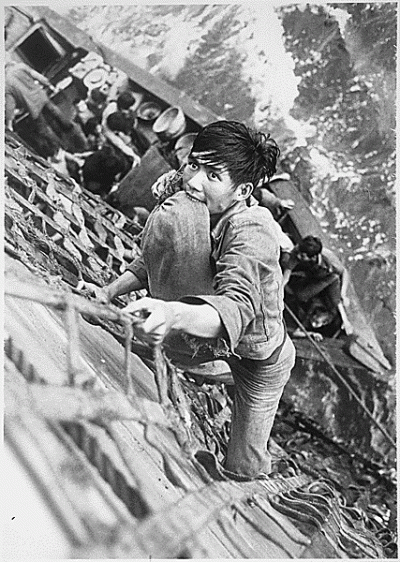“Is Mediterranean Search and Rescue a pull factor?” Or is that an irrelevant question?
Posted:
Time to read:
Post by Pål Nesse, Senior Adviser at the Norwegian Refugee Council. This is the fifth and final instalment of the themed series on the humanitarian Search and Rescue, from the Nordic perspective.

A few years back I participated in a moving ceremony outside the Maritime Museum in Oslo, where Vietnamese refugees unveiled a monument in appreciation of being rescued by Norwegian merchant ships in the South China Sea in the 1970s and 80s. In the first row were several retired captains, some of them in their nineties, sitting next to Vietnamese people that were rescued at their orders. They were life-saving heroes - and the many hundred saved were granted resettlement in Norway. Fortunately, I never heard anyone suggesting this was an unacceptable practice, as it was a pull factor for future Vietnamese migrants.
Since then, I have visited the Italian Coast Guard in Sicily, the crew on a Norwegian oil rig support ship that rescued 1,900 persons off the Libyan coast, fishermen and others plying the seas. They all referred to the duty of rescue as an “of course” practice, something they all adhere to.
In July last year, Germany requested European countries to join a “coalition of the willing” that would jointly share responsibility for those rescued in the Central Mediterranean – and support Italy’s policy change that again permitted disembarkation in Italy, without Italy solely being left the responsibility for those coming ashore. Eight European countries responded positively. Since then, more have joined. This is one of those few recent European occasions - where the shortage of pan-European consensus on refugees and migrants resulted in a constructive protection and responsibility sharing initiative.
As I write this, the Norwegian ship “Ocean Viking” has 407 migrants on board, rescued in the Mediterranean during the last week of January. The ship is chartered and operated by MSF (Doctors Without Borders) and SOS Mediterranée. Yet, various European governments, including my own, keeps warning against this NGO activity. They claim it constitutes a pull factor for African migration to Europe, contributing to more deaths at sea.
Academics and news channels have countered this argument based on their research and interviews with the migrants and refugees themselves. NGOs operating rescue ships claim the same. Migrants state they took the risk of leaving Libya to reach Europe by boat, irrespective of rescue ships in the area.
But isn’t the question of “pull factor” the wrong one to start with? Any forced displacement or voluntary migration intervention in countries of origin, transit countries or potential destinations may constitute a certain degree of push or pull - based on real or perceived options and opportunities for those on the move. Rescuing people from fragile or sinking boats at sea is a humanitarian imperative, practiced by coastal countries like Italy and Norway for centuries. Even if the boat used for the transport should never have left the port of origin due to its condition, incompetence of the crew or the weather forecast, that is irrelevant to the simple duty of rescue.
Ask any sailor.
Any comments about this post? Get in touch with us! Send us an email, or post a comment here or on Facebook. You can also tweet us.
__________
How to cite this blog post (Harvard style)
Nesse, P. (2020). “Is Mediterranean Search and Rescue a pull factor?” Or is that an irrelevant question?. Available at: https://www.law.ox.ac.uk/research-subject-groups/centre-criminology/centreborder-criminologies/blog/2020/03/mediterranean [date]
Share:








